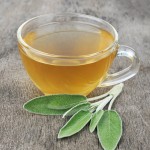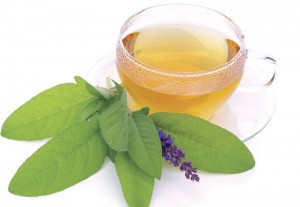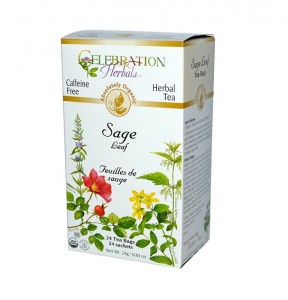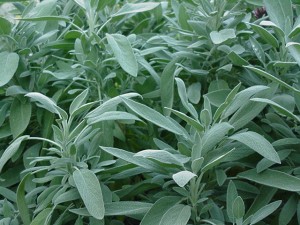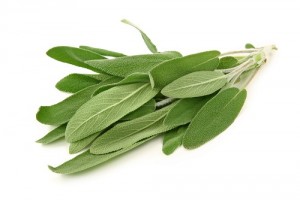Sage Tea
What is Sage Tea
Sage tea is an aromatic health-boosting herbal drink brewed from the fresh or dried leaves of sage, a short perennial shrub grown in the Mediterranean region. It has several medicinal properties beneficial for a host of ailments. White sage tea is prepared from another species of sage having different health benefits.
History and origin
Several ancient herbalists used it for treating heavy menstrual bleeding, a sore throat, cough, and rheumatism. It was also a traditional herbal aid for sleep disorders, cold, and fever.
Sage tea health benefits: What is it good for
Effects on anxiety and stress
Being a natural relaxant, it acts as an effective remedy for anxiety and stress-related disorders, thereby helping in enhancing the mood. Its intake might be useful for reducing headaches, and inducing sleep in those with insomnia.
Prevents infections
The infection-fighting ability of the herbal decoction comes from its antibacterial, antifungal, antiviral, and anti-inflammatory properties, assisting in resolving infection in the ear, nose, or throat as well as healing infected wounds. It is also beneficial for getting relief from infected gums and abscesses. Additionally, it functions as an expectorant, eliminating the excess mucus in the airways.
High antioxidant content
According to some research studies, its antioxidants have been shown to improve the functioning of the liver by preventing the lipids from undergoing degradation, and thus cutting the risk of severe damage. There is some evidence that supports its ability to suppress the growth of cancer cells in the colon due to the presence of rosmarinic acid, having antioxidant properties.
For menopause
Having estrogenic effects makes it suitable for relieving hot flushes in elderly women undergoing menopause. In some research studies, it has been shown to reduce the other menopausal symptoms such as mood swings and frequent urination.
For diabetes management
It plays the role of a healthy supplement for Type 2 diabetes by triggering the production of insulin, therefore maintaining normal blood glucose levels.
Useful for excessive sweating
A warm cup of the herbal infusion can lower profuse sweating, medically termed as hyperhidrosis, preventing unpleasant body odor.
Aids in improving memory
Due to its memory-boosting properties, sage tea can be effective for easing the early symptoms of Alzheimer’s disease, thereby enhancing mental focus, information processing, and learning.
Good for lungs
Its antispasmodic properties have soothing effects on the respiratory system that can help in getting rid of coughing, breathlessness, whizzing, and chest discomfort, the common symptoms of asthma.
Facilitates digestion
It can be taken for boosting digestion as well as resolving flatulence. Its daily consumption may also help in enhancing the appetite.
Diuretic effects
It eliminates the toxins from the body, cleansing the liver, kidneys, and bladder.
It might also have the potential for controlling cholesterol levels, easing menstrual cramps, and maintaining a healthy weight.
Other uses
- Topical application of the herbal decoction might reduce swelling, itching, and pain that occur due to an insect bite.
- It can be used for gargling to get relief from mouth ulcers, canker sores, tongue sores, and inflammation of the mouth and throat.
- Use of the herbal infusion as a hair rinse might reduce itchy scalp as well as graying of the hair. It can be combined with apple cider vinegar and applied on the scalp for promoting hair growth.
How to make sage tea
- Heat 1 cup of water in a saucepan
- Add fresh or dried sage leaves when the water begins to boil
- Steep for about 3-5 minutes
- Strain the mixture
- Sweeten it with honey or sugar
Safety and precautions
Side effects
Although it is a safe herbal drink, excessive consumption might lead to dizziness, mouth swelling, increased heart rate, cracked lips, and dry mouth. Its long-term use has also been linked to epileptic seizures and liver damage. As it might cause allergy in some cases, discontinuing its use is advisable.
During pregnancy
In pregnant women, it might induce uterine contractions, causing miscarriage. Sage tea is not recommended for breastfeeding mothers since it contains thujone that can lower the milk supply.
Where to buy
Dried sage tea leaves and tea bags can be purchased from any local herbal tea shop or online store. There are many retail stores selling the other popular variations such as organic sage tea, pineapple sage tea, and blackberry sage tea.
References
- http://healthyeating.sfgate.com/sage-tea-good-for-8148.html
- http://www.herbwisdom.com/herb-sage.html
- https://www.verywellfit.com/sage-tea-what-should-i-know-about-it-89512
- http://www.findhomeremedy.com/home-remedies-for-excessive-sweating/
- http://www.speedyremedies.com/sage-benefits.html
- http://www.herbal-treatment-remedies.com/sage-tea-benefits.html
- http://www.drugs.com/npp/sage.html
- https://www.besthealthmag.ca/article/how-sage-can-help-your-health/
Article was last reviewed on 24th November 2022
Related Articles
Leave a Reply

Ginkgo Biloba Tea
The Ginkgo Biloba tea is an herbal infusion obtained from the extract of the dried leaves
Read more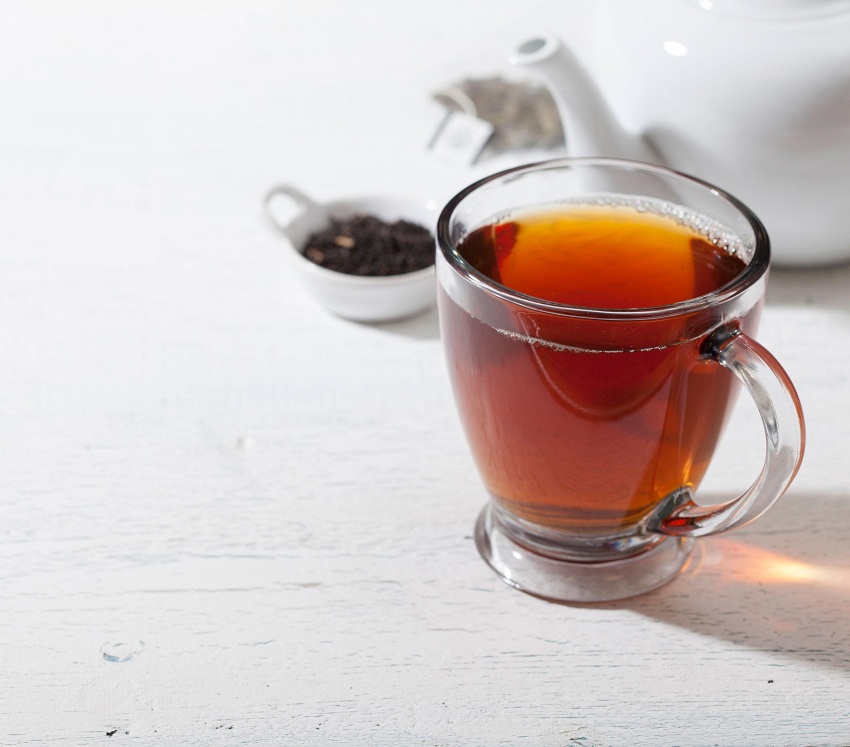
Black Tea
Black tea, belonging to the same group as the green, white and oolong teas is the most oxi
Read more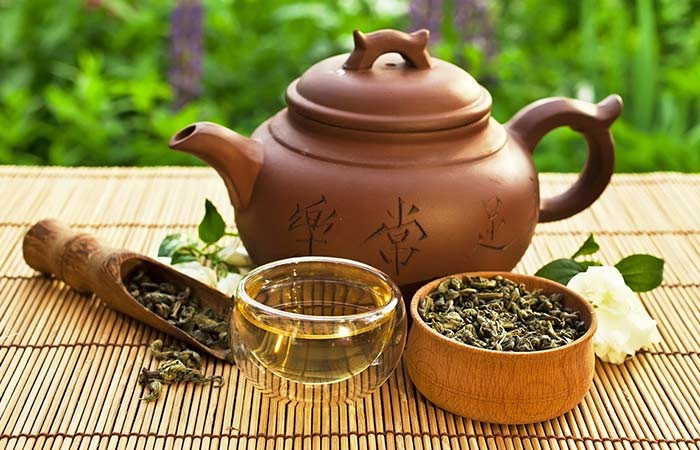
Oolong Tea
What is oolong tea Oolong, a traditional beverage of China, is prepared from the buds, st
Read more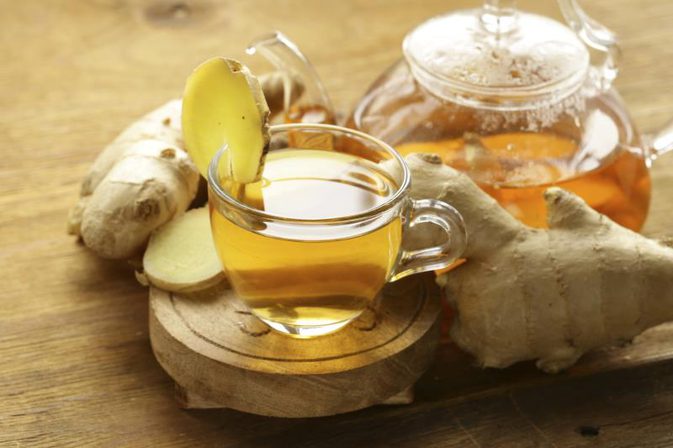
Ginger Tea
Ginger tea, prepared from the roots of ginger, is a popular herbal beverage of Asia. Becau
Read more
